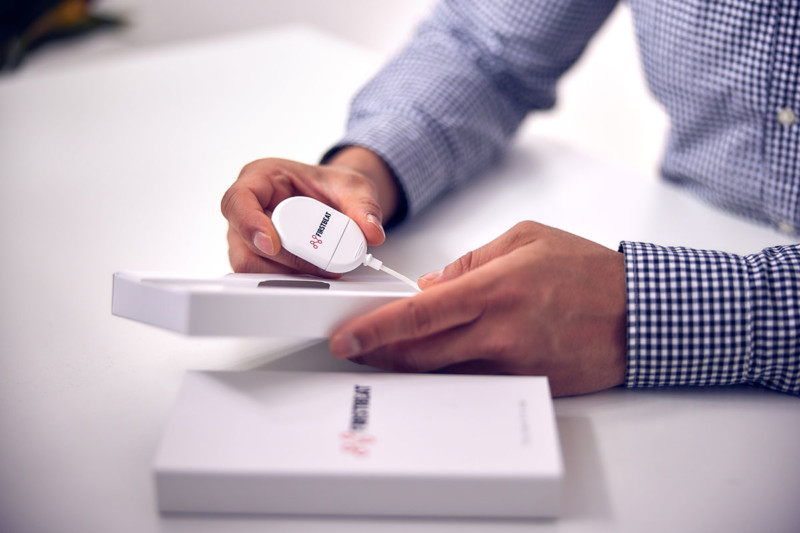
Good night, sleep tight… but what exactly is a good night’s sleep?
One of the main purposes of sleep is to recover from daily activities and replenish the body physiologically and psychologically. Physiologically recovery means reduced activation levels in the body. During recovery parasympathetic (rest & digest) activation dominates the autonomic nervous system and the sympathetic (fight or flight) response is diminished.
The more the parasympathetic system dominates during sleep, the more your body is able to recover and the more resources you have for the following days and tasks. Thus, a good night’s sleep contains plenty of parasympathetic domination that balances your daily stress responses. This is called restorative sleep.
Obviously, the amount of sleep is also important: if you sleep for only a few hours a night it is not possible to have enough for recovery. In general, it is said that adults need at least 7 hours of sleep to get rested (National Sleep Foundation). However, sometimes you might have slept 8 hours or more and you still feel exhausted and sleepy. In this case the amount of restorative sleep is probably low and there has been a stress response going on in your body despite being asleep.

The amount of sleep is easier to control by yourself than sleep quality, at least if you don’t suffer from insomnia.
Sleep Quality vs. Quantity
So, which one counts, the quality or the quantity? Is 9 hours of mediocre sleep better than 6 hours of excellent sleep?
Unfortunately, there is no clear-cut answer since it is the combination that matters. To a certain degree, it is possible to compensate one with the other. For example, if you are a super sleeper and almost 100 % of your sleep is restorative, you can do well with only 6 hours of sleep, but if the quality is poor, you might need over 9 hours of sleep.
But the line is drawn somewhere: less than 5 hours of sleep (for 18–64 years old) is not enough for a true recovery in the long run, although you can manage some single days with that little sleep. And vice versa: for example overtraining, illness or some environmental factors can deteriorate your sleep quality, hence you are not alert and energetic, no matter how many hours you sleep.
Sleep Is in Your Heart
To make things simpler Firstbeat has created a Sleep Quality Assessment that takes into account the sleep duration and the quality of recovery during sleep. It indicates how well your sleep supports the replenishment of body resources by revealing your sleep score, on a scale from 1 to 100.
Sleep score 100 means your sleep is excellent: you have slept enough and most of it has been restorative. 80–99 stand for good sleep, 50–79 for moderate and 0–49 for poor sleep. Sleep score is a combination of two variables, amount and quality of sleep. Thus, you can achieve the same score in many ways, by sleeping longer or sleeping better.
For example, to get the same sleep score you need 20 % more restorative sleep if you sleep only 6 hours instead of 7 hours.
How does Firstbeat know how you sleep? It is all in your heart. Insight into the restorative quality of your sleep is coded into your heart rate variability which responds quickly to constant changes in your autonomic nervous system. Firstbeat analytics identify and interpret meaningful patterns in your heartbeat data and the sleep score gives you the ability to know how you slept and recognize lifestyle factors that affect your sleep quality.
Quite often the duration and the depth of sleep is estimated only based on a motion-sensor. However, the accuracy may vary depending on how much you move while sleeping – and whether you are just lying still but not asleep. Because the analysis of your heart rate gives an insight into your autonomic nervous system, it identifies more reliably if your sleep is restorative or not.
Sleep Can Change Your Life
In a dream world, you would always get enough high-quality sleep every night and wake up feeling refreshed and recharged. Unfortunately, that is not the case, at least for most of us. Sometimes it is the busy schedules that force you to reduce sleeping hours, sometimes kids keep you awake, sometimes partying and alcohol wreck your restorative sleep.
However, the importance of sleep shouldn’t be overlooked. A good night’s sleep is vital to our physical health and psychological well-being. Sleep improves your memory and mood, reduces stress, helps you to maintain your weight and affects your performance in many ways… to name just a few.
The amount of sleep is easier to control by yourself than sleep quality, at least if you don’t suffer from serious insomnia. Stick to a sleep schedule, control your exposure to light, make sure your sleep environment is proper and be smart about eating and drinking. You can read more about sleeplessness and tips for dealing with that in our previous blog.
Of course, you can also affect your sleep quality by identifying lifestyle factors that reduce the amount of restorative sleep. For example, alcohol is a general reason for poor sleep quality. Even a single drink can have a negative impact on the restorative sleep. You can read more about improving sleep quality, in our previous blog.
To sum up, the amount and the quality of sleep are closely intertwined– not just to each other but also to your general lifestyle and daily habits. Healthy lifestyle choices can make a big difference to your sleeping habits which in turn can improve your overall well-being in a tremendous way.
Are you eager to know how well you sleep? We can help.
You might also be interested in

Towards Better Sleep: What Do Hormones, Daylight and Being Active Have to Do with It?
In March we celebrate healthy sleep because it is international sleep month and sleep awareness month – and today is World Sleep Day. A good time to spend a few…

Why Good Sleep Hygiene Really Matters in Elite Sports
The levels of physical and mental exertion required to maintain performance at the elite level means effective recovery is essential. Good quality sleep is one way of getting exactly that. However, getting enough sleep (and the right kind) can be harder than it sounds.

Resting Heart Rate – How to Utilize Heart Rate Information in Firstbeat Life
Resting heart rate is a key component in detecting stress and recovery as part of the Firstbeat Life™ service. A reliably measured resting heart rate forms a strong foundation for interpreting…
